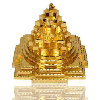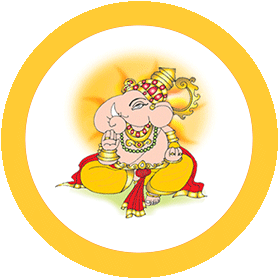Monthly Panchang : [Phalguna - Chaitra]
2082 , Vikram Samvat
March, 2026 Panchang for New Delhi, India
| Sunday | Monday | Tuesday | Wednesday | Thursday | Friday | Saturday |
|---|---|---|---|---|---|---|
|
Trayodashi (S) 13 1 17 |
Chaturdashi (S) 14 2 18 |
15 3 19 |
Pratipada (K) 1 4 20 |
Dvitiya (K) 2 5 21 |
Tritiya (K) 3 6 22 |
Chaturthi (K) 4 7 23 |
|
Panchami (K) 5 8 24 |
Shashti (K) 6 9 25 |
Saptami (K) 7 10 26 |
Ashtami (K) 8 11 27 |
Navami (K) 9 12 28 |
Dashami (K) 10 13 29 |
Dashami (K) 10 14 30 |
|
Ekadashi (K) 11 15 31 |
Dwadashi (K) 12 16 2 |
Trayodashi (K) 13 17 3 |
Chaturdashi (K) 14 18 4 |
15 19 5 |
Dvitiya (S) 2 20 6 |
Tritiya (S) 3 21 7 |
|
Chaturthi (S) 4 22 8 |
Panchami (S) 5 23 9 |
Shashti (S) 6 24 10 |
Saptami (S) 7 25 11 |
Ashtami (S) 8 26 12 |
Navami (S) 9 27 13 |
Dashami (S) 10 28 14 |
|
Ekadashi (S) 11 29 15 |
Dwadashi (S) 12 30 16 |
Trayodashi (S) 13 31 17 |
Chaturdashi (S) 14 1 18 |
15 2 19 |
Pratipada (K) 1 3 20 |
Dvitiya (K) 2 4 21 |
Note: (K) - Krishna Paksha Tithi, (S) - Shukla Paksha Tithi
Number in red colour: Tithi
Number in blue colour: Pravishta / Gate
Monthly Panchang
Monthly Panchang or Panchangam is an Indian Hindu based monthly calendar. Indian people do believe in auspicious moment to start any activity. For that, they check Indian Calender, known as Panchang. Once they get the confirmation about an auspicious time, then only they perform any new task. There is an yearly calendar defined in Astronomy including 12 months. Likewise, we have an Indian calendar including 12 months. It is also known as 'Almanac' according to ancient Vedic.
What is Panchang?
Panchang is basically a calendar consisting of five limbs. Panchang consists of two words namely, 'Panch' and 'Ang'. Panch means 'Five' and Ang means 'Limbs'. These limbs are Tithi, Vaar, Yog, Karan and Nakshatra. It is a process of keeping time in a tabulated form, like a ledger in accounting. It is a Sanskrit word, which has been derived by the word 'Panchangam'. It represents the five limbs of a calendar. Vedic Astrology is divided into five fundamental parts, also known as Panchang.
The Panchang is used by the astrologers in order to find and judge an auspicious time to perform any task. It is also used to calculate vedic birth chart or natal chart of a person. It is also called by various names in different regions of India like Tamil Panchangam, Telugu Panchangam, Kannada Panchangam in South India, Gujarati Panchang, Marathi Panchang in Western India, Hindu Panchang in North India, and Bengali Panchang in East India etc. It is also known as Hindu Calendar based on Nakshatra readings in the sky.
How Monthly Panchangam is Calculated?
Monthly Panchang is basically a collection of important dates and times placed in a tabular format for a particular month. It will enable to let you know about an auspicious moment. These dates are based on the astrological facts and also on astronomical data as per Nakshatra. The important dates are mainly analysed with respect to Moon Nakshatra, that means the nakshatra in which your natal Moon is placed.
The calculation is based upon the position or movement of planet, star or Nakshatra in a certain sign and at a certain degree. How these alignment are supposed to affect the person on so called dates can be analysed through important dates of Panchang. One should understand the concept of sidereal movement of universal bodies in order to get a clear understanding of casting a Panchang. It involves lots of mathematical calculation with geometric patterns and also includes understanding of astronomical phenomenon.
The panchang is used to calculate tithi, vaar, yog, karan and nakshatra to find out Muhurat (an auspicious time to perform any important task). It can be checked while finding muhurat for marriage, griha pravesh, starting of any puja for an auspicious work etc.
It has proved to be more effective while taking medicinal herbs, that means you will be cured in no time while taking medicinal herbs or Ayurvedic treatment. If you start taking medicine at a certain nakshatra, it can give you better and quick relief from diseases. Ephemeris can provide you important dates and time of famous Indian festivals for the whole month based on the position of Moon and planets in a certain nakshatras and signs. Panchang can provide you the exact timing to perform any task.
Five Limbs of Monthly Panchang
As we have already discussed, the Monthly Panchang is divided into five parts in Vedic Astrology. Panchang consists of 12 months and each month is further divided into two Paksha, commonly known as Shukla Paksha and Krishna Paksha. Each Paksha is of 15 days. The calculation of months is based on the movement of Sun and Moon. The day, when Sun enters into certain sign, is celebrated as Sankranti whereas the position of moon in certain Nakshatra on Poornima describes the month of the year. Let’s find below the five limbs of Panchang:
● Tithi
There are 30 tithis defined in Vedic Astrology in a month. The first fifteen tithis of Hindi are included in Shukla Paksha whereas the next fifteen tithis are included in Krishna Paksha. If moon completes 12 degree, then it will be one tithi of that particular month. These pakshas are also called as bright half and dark half of moon. Tithis are classified into 5 types namely, Nanda, Bhadra, Rikta, Jaya and Poorna.
● Vaar
It is also known as the 'Day' of the week. The time difference between one sun rise to next sunrise is known as 'Vaar' or Day. The Vaar are seven in Numbers viz, Sunday, Monday, Tuesday, Wednesday, Thursday, Friday and Saturday.
● Yog
Yog, the name itself implies the summation. It can be calculated through the sum of longitude of Sun and Moon by dividing 13 degree 20 minutes. There are 27 Yogas as defined in Vedic Astrology
● Karan
Karan is half of tithi. Hence if Tithis are 30 in number in a particular month then Karan will be 60 in number for that particular month. These are of two types in nature namely, Movable and Fixed. Movable Karans are 7 in number namely Baav, Balav, Kaulav, Tatilya, Gara, Vaanij, Vishti and Fixed are 4 in number namely, Shakuni, Chatuspad, Naag, Kitughna.
● Nakshatra
There are 27 nakshatras defined in Astrology as well as Astronomy. The group of stars are basically known as 'Constellation'. Every Nakshatra consists of 4 charans and one zodiac sign consists of 9 charans. The name of 27 Nakshatras are as follows in sequence: Ashwini, Bharani, Krittika, rohini, Mrigshira, Ardra, Punarvasu, Pushya, Ashlesha, Magha, Poorva Phalguni, Uttar Phalguni, Hasta, Chitra, Swati, Vishakha, Anuradha, Jyeshtha, Mula, Poorva Ashada, Uttar Ashada, Sravan, Dhanistha, Shatbisha, Poorva Bhadrapad, Uttar Bhadrapad and Revati.
Name of Months in a Panchang
There are twelve months derived in Hindu Vedic Astrology. All the months are derived through the name of particular Nakshatra. Mentioned below is the name of Months defined as per the HIndu Calendar:
Chaitra, Vaisakha, Jyeshtha, Ashadh, Sharavan, Bhadra, Ashwin, Kartik, Margasheersh, Paush, Maagh, Phagun.
Need of Panchangam
We need to check monthly panchang in order to find out an auspicious time in our life for that particular month. A new venture started during favourable star can provide you fruitful results or be beneficial for you. It can be used to know following tasks:
● Panchang is very important to check your day to day or practical tasks based on astrology.
● It is a good & auspicious time finding tool and used to know the good time to start any business.
● It is a kind of astrological diary which helps you to let know about the position of planets and nakshatras in certain sign.
● It is an ancient science which helps you to know about your good time to start any activity in order to increase the chances for success in your concerned area.
Hence in conclusion, Monthly Panchang is an astronomical time keeping instrument to know about Muhurat in a month and results it will or might provide. Astrologers must check the Monthly Panchang in order to find out a suitable time slot.

 ₹
₹ 














